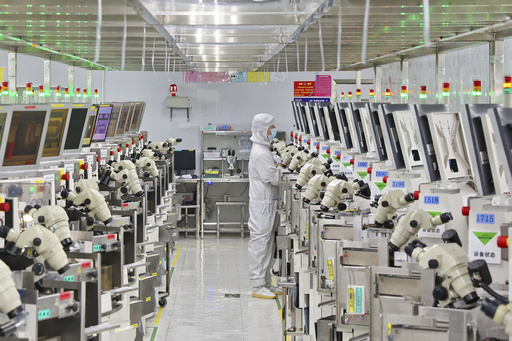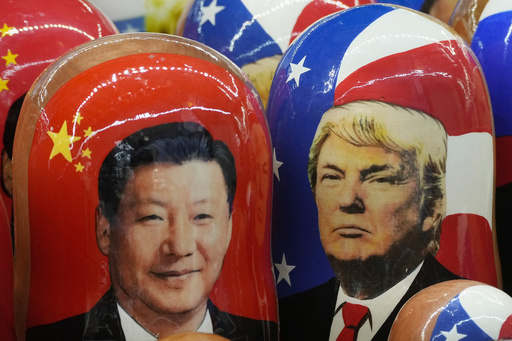China announced a wave of retaliatory measures on Tuesday, including tariffs on U.S. imports and an antitrust investigation into Google.
The announcement came just minutes after President Donald Trump’s new tariffs on Chinese products took effect.
Trade War Heats Up as Trump Targets Imports
The latest tariffs are part of Trump’s broader trade crackdown, which initially included Canada and Mexico. While tariffs on those countries were delayed for 30 days after security talks, China has shown no signs of backing down. Trump is expected to speak with Chinese President Xi Jinping in the coming days, but the escalating standoff has revived fears of another trade war.

The two countries clashed over tariffs in 2018, with each imposing new levies in response to the other. This time, analysts believe China is better prepared and has crafted a response that goes beyond tariffs, aiming at multiple sectors of the U.S. economy.
China Imposes New Tariffs on Energy and Automobiles
China announced a 15 percent tariff on American coal and liquefied natural gas, along with a 10 percent tariff on crude oil, agricultural machinery, and large-engine cars. These tariffs take effect next Monday.
Though the impact on U.S. exports may be limited, China’s move signals a calculated escalation. While the United States is a major exporter of liquefied natural gas, it supplies only a small percentage of China’s total demand. Similarly, China’s car imports primarily come from Europe and Japan.
Beijing Tightens Control Over Critical Minerals
In addition to tariffs, China announced new restrictions on the export of key minerals, including tungsten, tellurium, bismuth, molybdenum, and indium. These materials are crucial for high-tech production and are designated by the U.S. as critical to economic and national security.
China has already imposed export controls on gallium and other rare elements, deepening concerns that its latest move could disrupt global supply chains. Analysts warn that further restrictions on these minerals could have a major impact on the U.S. economy.
Google Faces Antitrust Investigation in China
China’s State Administration for Market Regulation also launched an antitrust probe into Google, just as Trump’s tariffs took effect. The scope of the investigation remains unclear, but it could have major consequences for Google’s business in China.
While Google’s search engine is blocked in China, its Android operating system is widely used by Chinese smartphone manufacturers. Industry experts say the investigation may be linked to long-standing complaints from Chinese tech companies.
U.S. Companies Face New Restrictions
China also placed two major American companies on its unreliable entities list—PVH Group, which owns Calvin Klein and Tommy Hilfiger, and biotech firm Illumina. This designation could ban them from trade and investment activities in China.
PVH Group was already under investigation for allegedly boycotting the use of Xinjiang cotton, a politically sensitive issue for Beijing. Analysts believe these restrictions are part of China’s broader strategy to pressure American companies into opposing U.S. tariffs.
Global Markets Brace for Fallout
Economists warn that the standoff between the two economic superpowers could have widespread consequences. A prolonged trade war could slow global economic growth, raise inflation in the U.S., and push interest rates higher.
With China targeting key sectors beyond tariffs, the battle between Washington and Beijing is far from over. The next round of negotiations between Trump and Xi will be critical in determining whether tensions ease or escalate even further.
Wall Street was mixed in light trading early Tuesday as anxiety dissipated somewhat after President Donald Trump agreed to a 30-day pause on his tariff threats against Mexico and Canada. Trump’s imposed tariffs on China remained in place.
Futures for the S&P 500 inched up 0.1% before the bell, while futures for the Dow Jones Industrial Average were off by 0.1%. The technology-heavy Nasdaq rose 0.3%.




